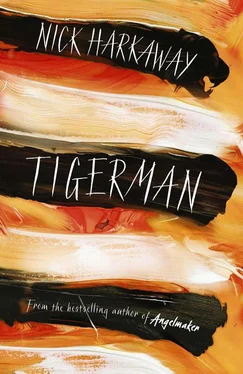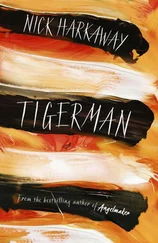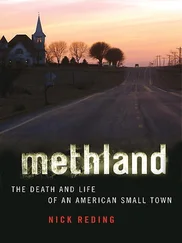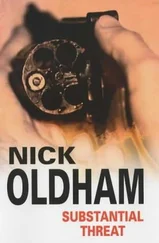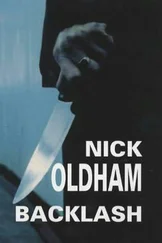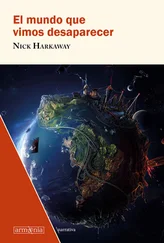‘It’s not about what he is to me! What is he to you?’
‘I thought. .’ He shivered, then dropped his voice so the boy wouldn’t hear, leaned across the counter to White Raoul. ‘I thought I could try to take him back with me. I thought he might need a home. And a dad, maybe.’
White Raoul stared back at him. ‘You doing this to be a father?’
‘I suppose.’
‘There’s easier ways.’
The Sergeant nodded. ‘Still.’
‘To be a father you’re going to put on a mask and be a monster?’
‘A hero.’
‘Oh, sure.’
‘Once, one time. To show him a win. A world where sometimes someone does fix it. Doesn’t just walk away.’ Doesn’t just sit and stare into space, and give up, and die by inches.
‘For a son you ain’t got.’
‘Yes.’
‘But that’s not funny!’ White Raoul shrieked abruptly. ‘That’s not funny at all!’ The scrivener dropped his head and leaned forward over the counter, shuddering. The Sergeant started forward to help him, but Raoul waved him off, his face wet. ‘Not funny!’ He plunged his hand into the black paint and across the face of the ballistic shield, fingers shaping the pigment. He slashed one way, then the other, and screamed, hammered his fist down onto the worktop. Paint splashed. His other hand delved into the yellow pot and clapped down dotting and slicing, and suddenly a tiger’s face leaped from the flat surface, made real by the contrast. The eyes were luminous.
Raoul reached for the second plate, and this time he used only the yellow. He moved his hand four times, and a shape like a mathematician’s x appeared, the lower portions curving back up. He went to make one more gesture and then snatched his hands away, forced his breath out slowly, like a man backing away from a fight.
‘That’s it,’ he said. ‘They always want more than they can carry. That’s pride, not the art. The smallest mark, the most meaning, and stop.’ He pushed the plates across the counter at the Sergeant. ‘There.’ He pointed at the tiger’s image. ‘Man see that in the night-time, he’s going to run like hell. Might shoot at it, too, instead of your thick head.’ The image seemed to ripple in agreement.
‘And this one?’ The Sergeant pointed to the second plate.
‘Backplate, Honest. Sometimes you got to leave in a hurry.’
‘I know that. What does it mean?’
‘Mean? Means you. Tiger’s face again. See? Cat’s mouth?’ He traced the lower part of the x , turned it around, and the Sergeant almost jerked back from it, the same tiger’s face conveyed in bare lines. His tiger, as it had stared down at him in the graveyard. The smell of the paint was heady and thick.
The scrivener touched the plates. ‘Touch-dry already. Waterproof in an hour. Now go. Show your boy.’
‘What’s not funny?’
‘Most things, I guess.’
‘When you were working. You said it wasn’t funny.’
‘I was possessed by the spirit of my future. How should I know?’
‘Tell me. Please.’
White Raoul sighed. ‘Nothing about this is funny, Honest. Take those to your boy and say you ain’t doing it. Throw them in the sea and tell him you want to take him away from here. See what he says. Maybe there’s a family for you after all. Leave your victory on this island where it belongs.’
‘Do you know,’ the Sergeant asked abruptly, ‘who his parents are? Are they alive?’
White Raoul stared at him. ‘Is that a price, Honest? I tell you, you take him away and forget all about your Tigerman? Even if he don’t want to go?’
After a long moment the Sergeant shook his head. White Raoul sighed and sat in the basket chair again, and closed his eyes. ‘Then I am sleeping now, Honest. Not talking. Go do what you do. Go.’ From the corners of his weak eyes, lines of moisture ran down his flat white cheeks, and he dabbed at them with leaded fingers, and turned away.
Outside, Lester Ferris rested his back against the black oak door and let the sun bake him. The armour plates were in his hands. He felt committed, filled with the taut excitement of an operation approved and begun. It was a sergeanting state of mind: make your decision in advance, and even in disaster everything thereafter makes sense.
Pechorin and his cronies had a hideout somewhere, a place where they took girls and got drunk. They went there every week. This time, the Sergeant would follow and take his moment with Pechorin. He would introduce the Ukrainian to Tigerman, the demon of Mancreu, and if possible capture that moment of bowel-loosening fear for posterity. A handy snapshot would adorn the inside lid of his locker for evermore, and more than a few messhalls, too. Rough justice, but justice, for sure. And then he would fade into the night and that would be that.
Barracks humour. An education in Lester’s Law. Nothing more.
He went back to Brighton House to put on the suit.
THE BOY HAD laid it out for him on the bed, and he felt a curious sense of purity as he changed. He began with undergarments supplied to work well with combat protective gear. Then he stepped into thick, blade-resistant cloth trousers and a similar shirt, then the body armour with White Raoul’s scrawled insignia, and then the utility belt, heavy and tight and covered in curious things the boy had felt he might need. Next there were gloves, thick and reinforced across the knuckles and braced to strengthen the wrists. A slick camouflage webbing wrapped around the whole to make him amorphous, a little mutable — it was for urban snipers, according to the box, and why anyone had imagined he might require it here he had no idea. In a separate bag was the mask, the boy’s special creation. He left it where it was for the moment.
He stared at himself in the mirror. The stele glimmered back at him, unfamiliar and slightly alive. He wondered if he was claiming it, or if the ownership went the other way around. Only one thing was lacking — but when the Sergeant reached for his side arm the boy stopped him.
‘Batman has no gun,’ the boy said.
‘Maybe Tigerman does,’ the Sergeant suggested. The boy shook his head very gravely.
‘No. He does not carry a gun because he does not need one. Men who carry guns think that guns make them strong, but they are not. Tigerman is a ghost, and he has skill and he cannot ever be stopped. He doesn’t carry a gun because he destroys the idea of the gun by existing.’
The Sergeant was painfully aware of how he could be stopped. The boy seemed to sense this, because he shrugged. ‘Also, it would not be good if you shot someone.’
This was clearly true.
He left the gun off, though he did sneak it into the glove compartment of the tiny, rusted hatchback which had been the Consul’s wife’s personal runabout, and before that part of a job lot brought to the island by the chemical men. They were known locally as toutous because they looked like turtles. Without plates it was as close to anonymous as he could hope for. He allowed his sidekick to drive — on Mancreu, you learned as soon as you could see over the wheel — and conceded that the boy might make a video recording insofar as that was possible without revealing himself or coming into the line of fire, but it was not to be shown, shared, broadcast or otherwise disseminated, ever.
‘And if anything goes wrong, you scarper. Dump the car in the alley behind the mission house.’
‘Scarper?’
‘Make yourself scarce. Drive away fast. Skedaddle.’
‘Vamoose!’
‘Yes. That.’
‘If anything goes wrong, I shall totally vamoose. But nothing will.’
The Sergeant sighed, and glanced at the sky. Some high cloud, some clear sky, the promise of rain before dawn. ‘Take us on a loop through the town,’ he said. ‘Get us under the awning at the fish market. Let a few people go past us, wait for a car like this one. We’ll buy some dinner at the same time.’ He drew a long coat around himself, hiding the suit.
Читать дальше
Конец ознакомительного отрывка
Купить книгу
